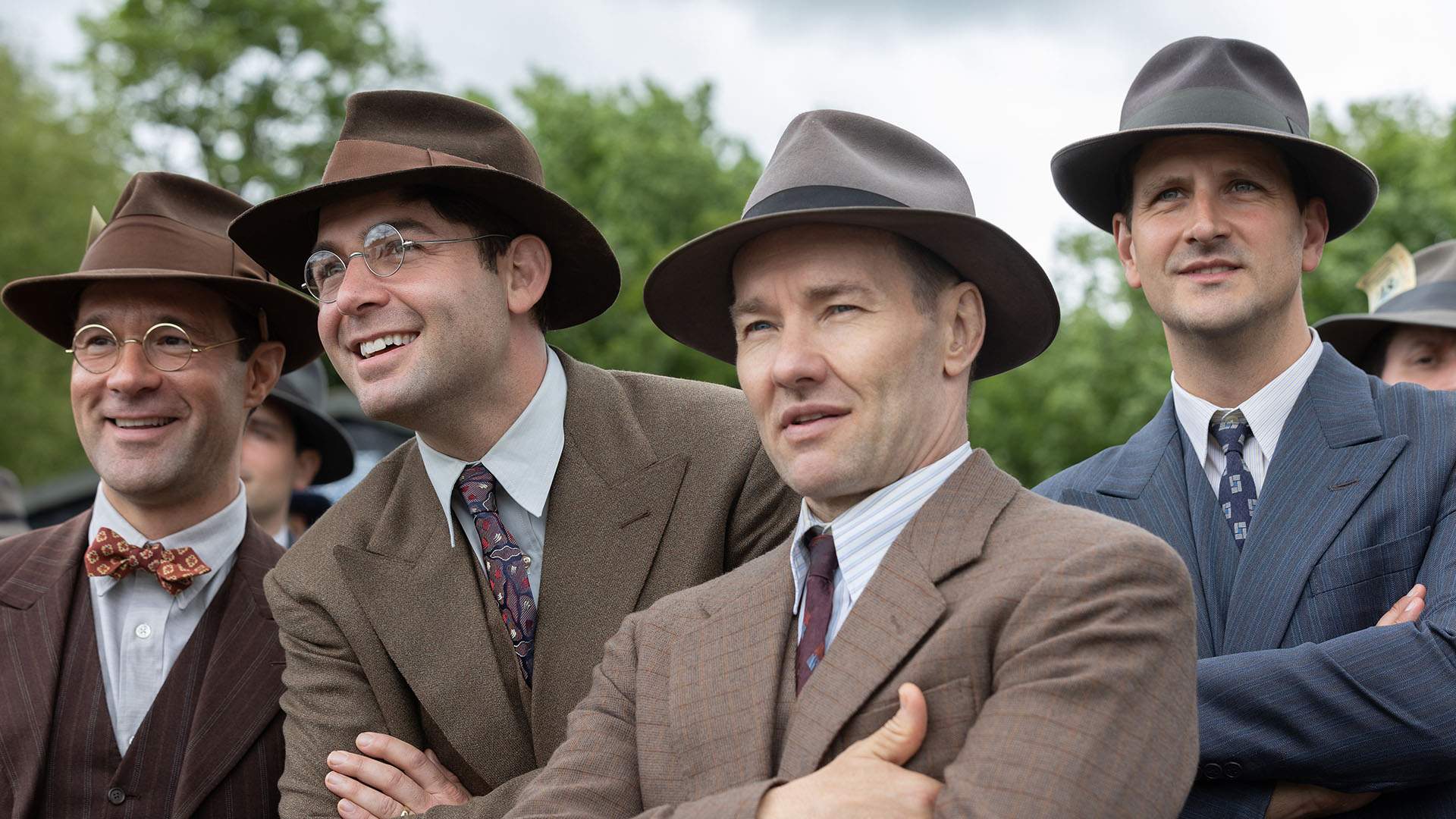From 'The Secret Life of Us' to George Clooney's Rousing Rowing Drama: Joel Edgerton Chats 'The Boys in the Boat'
The Australian actor plays "basically the opposite of Ted Lasso" in this underdog sports film that's based on a remarkable true story.
Tell Joel Edgerton that you're a rower and he won't be surprised. Everyone has been. "Once you start getting involved in a movie about a certain subject, it's amazing how many people come out of the woodwork," he explains. "They're like 'oh yeah, I rowed in college or university' or 'my son is a rower' and 'my daughter is rower'. It's a more popular sport than I had realised. And certainly back at the time that this story was taking place, rowing was one of the biggest sports in the United States."
The film: The Boys in the Boat. The time: the Great Depression era, including the 1936 Berlin Olympics. The tale: an IRL chapter of sporting history that Edgerton found remarkable, as audiences should as well. "I could only assume that being Australian and not American is the reason why I've never heard of it before," he advises. "But if you start to weed out anyone you know who's been on a rowing team or is a rower, they know about this story."
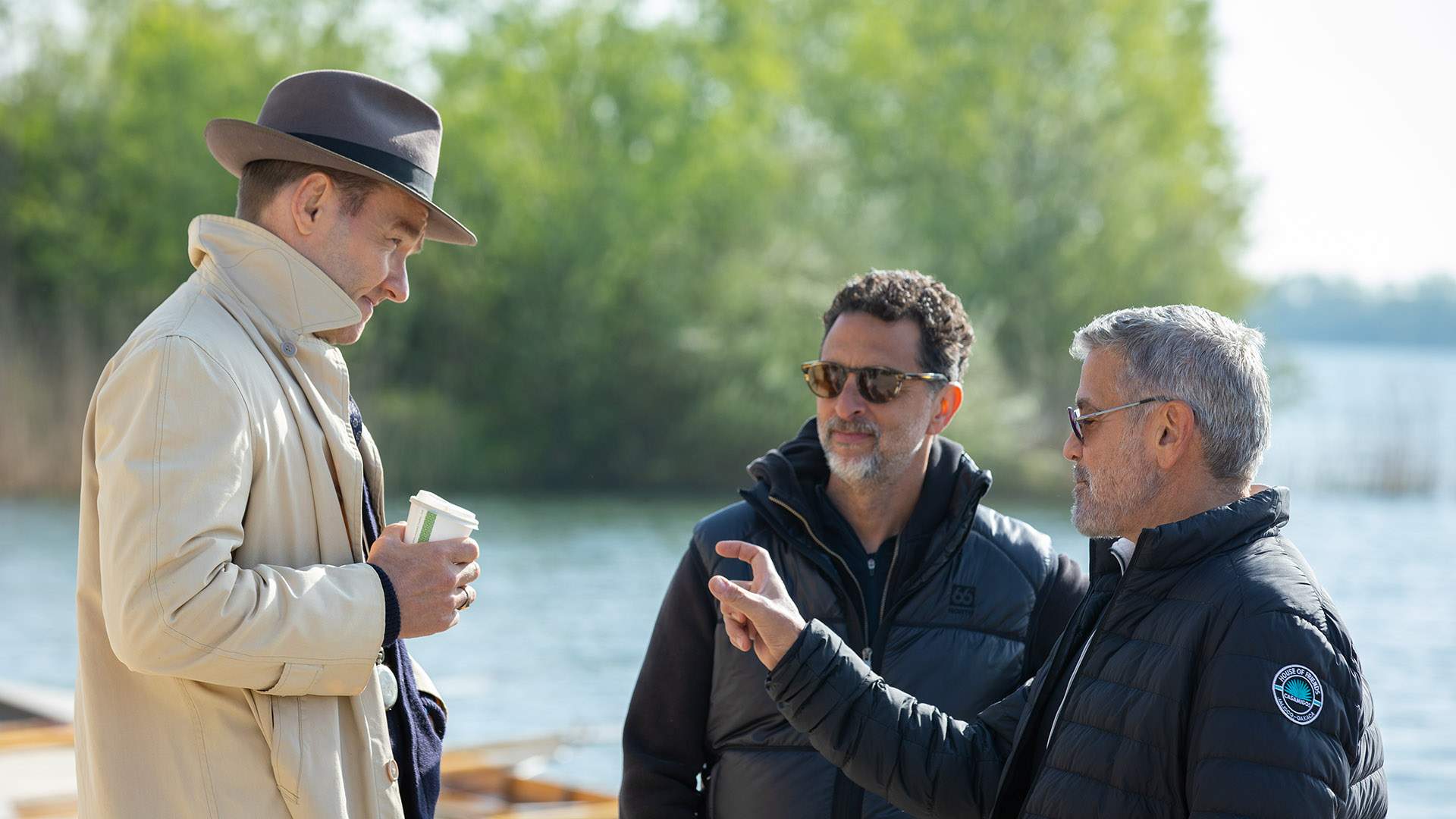
The ninth directorial effort from George Clooney (The Tender Bar), with Edgerton in a role that the actor-turned-director might've once played himself — and could've still easily now — The Boys in the Boat focuses on the University of Washington's junior varsity team, rower Joe Rantz and coach Al Ulbrickson. The squad competed on the world's biggest stage over the college's senior crew, at an Olympics held at a difficult period and in a fraught place. On his own since he his early teens, Rantz picked up an oar solely for the money paid to the team's athletes, plus the fact that they received somewhere to stay. Ulbrickson was the former rower who saw something in Rantz, but whose inner warmth and support isn't easily given when his eyes are firmly on the prize, as they always were.
Edgerton plays Ulbrickson opposite Callum Turner (Fantastic Beasts: The Secrets of Dumbledore) as Rantz, with Clooney working with a screenplay adapted from 2013 non-fiction novel The Boys in the Boat: Nine Americans and Their Epic Quest for Gold at the 1936 Berlin Olympics. As the film's star himself notes, it's an underdog story, as sports movies tend to be. But the astonishing real-life details also fuel an exploration of the class clashes that see the pastime inherently equated with wealthy schools and well-off students, rather than the struggling Rantz and many of his crewmates, as told with sincerity, impactful performances and thrilling rowing scenes.
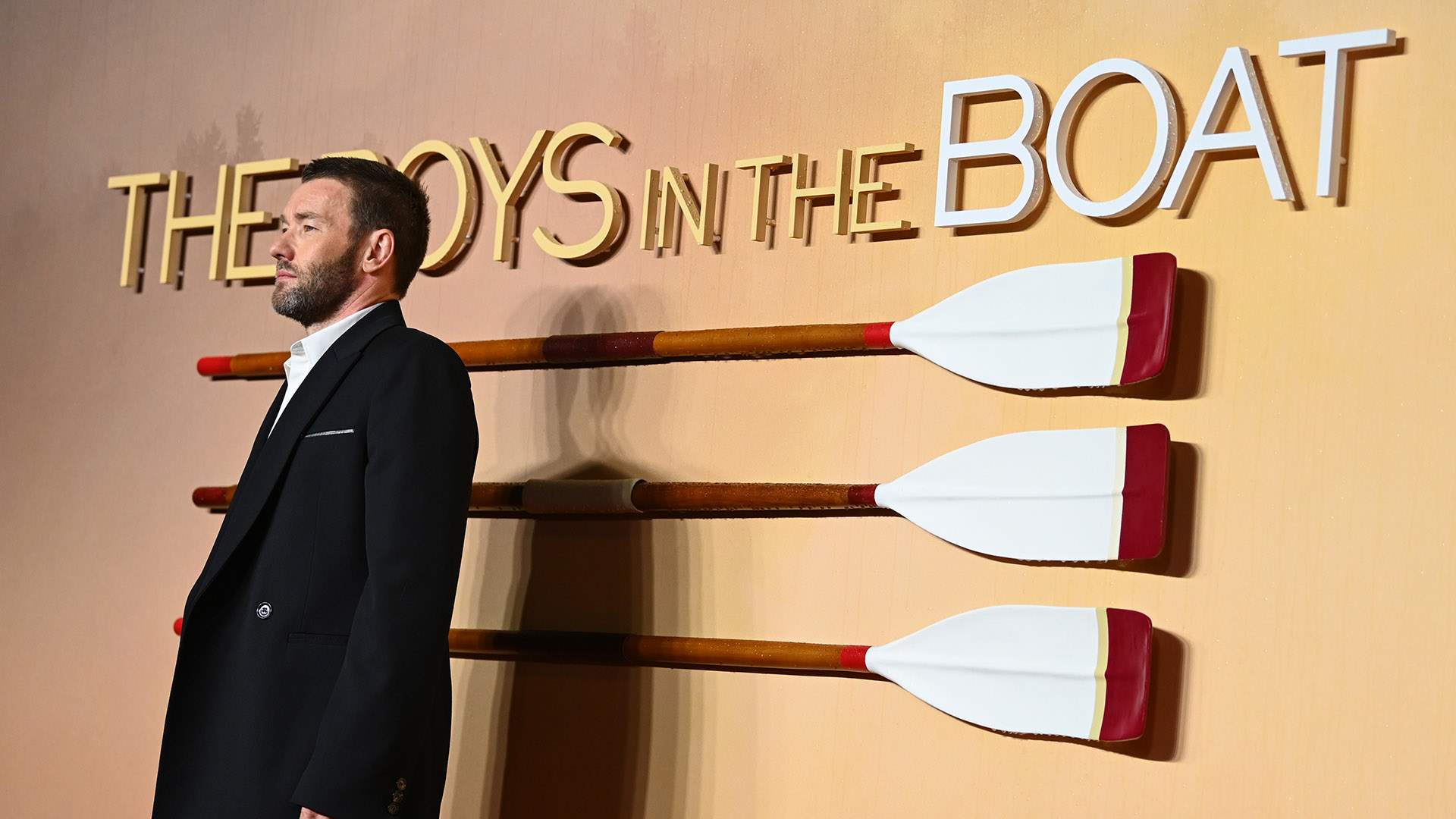
Joe Maher/Getty Images for Warner Brothers
If it feels as if Edgerton is never far away from a screen, there's a reason for that: nearing three decades since his first credit in children's television series Spellbinder, his resume overflows with homegrown highlights and Hollywood productions. For Australians, he'll always be The Secret Life of Us' Will McGill. He'll always have Ned Kelly, The Square, Animal Kingdom, The Great Gatsby and The Stranger to his name as well. For everyone, he'll always be the Star Wars' franchise's Owen Lars, including as recently as Obi-Wan Kenobi. Zero Dark Thirty, Warrior, Midnight Special, Loving, It Comes at Night, The Underground Railroad, The Green Knight, I'm a Virgo: they all grace his filmography. So does directing and writing The Gift and Boy Erased while also featuring in both, producing The Stranger as well as leading it, and helping to turn Boy Swallows Universe into a streaming series.
What appealed to Edgerton about taking on the part of Ulbrickson, who he notes "is basically the opposite of Ted Lasso"? How does he approach stepping into someone else's shoes, as he also did in Thirteen Lives recently? Was there a common baseline with Clooney on set, given that both are actors who direct, write and produce? Where did he originally imagine his career would take him? Edgerton chatted to Concrete Playground about all of the above — plus his first reaction to the tale told in The Boys in the Boat, which is in cinemas Down Under now, and more.

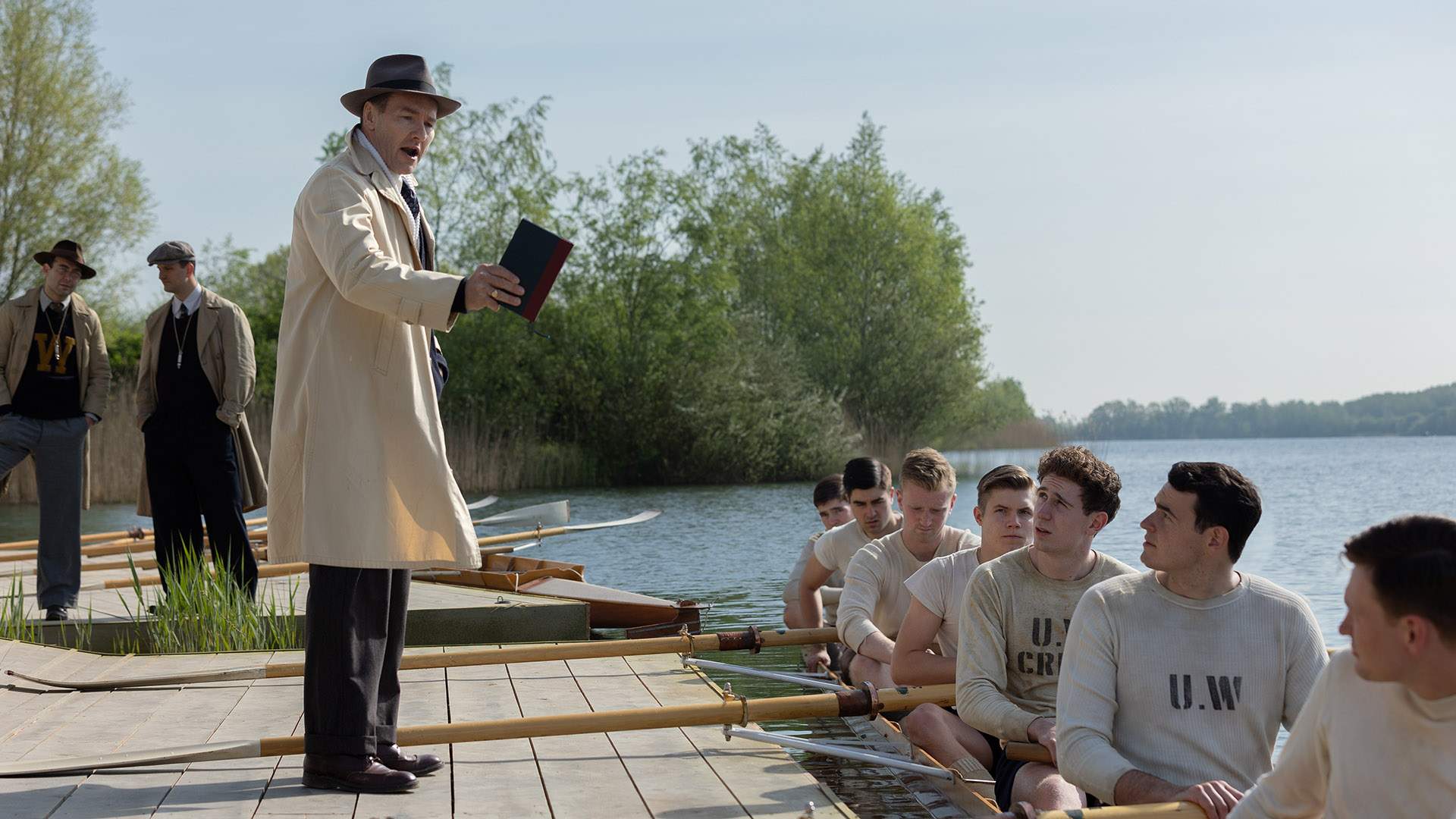
ON EDGERTON'S FIRST REACTION TO JOE RANTZ AND AL ULBRICKSON'S TALES
"My feeling about sports stories — I was involved in a big one, a sports movie called Warrior. I remember at the time, in the aftermath of that, realising that the sports movie isn't necessarily about the sport that's being depicted. It's really about the themes and about the character, and particularly about rooting for an underdog. And that if the movie's made well, that you can really appreciate it despite not knowing much about sport in question.
So the idea that you could go watch The Boys in the Boat without really having much of a knowledge about rowing, I think it's true. You could go because it's really about the underdog story about these guys realising how they have to get united in order to achieve the victory.
But I just got very excited. The biggest thing that really grabbed me was when you read that Joe Rantz had been abandoned by his father when he was 13 years old. And fully abandoned, as in left to live on his own — at the age of 13, through the depression.
That, I don't know why — I'm sure it would've affected me hearing about that pre being the father, but picturing myself at the age of 13 being left to my own devices, I don't know how I would have survived. And that aspect to this underdog story really, really grabs me."

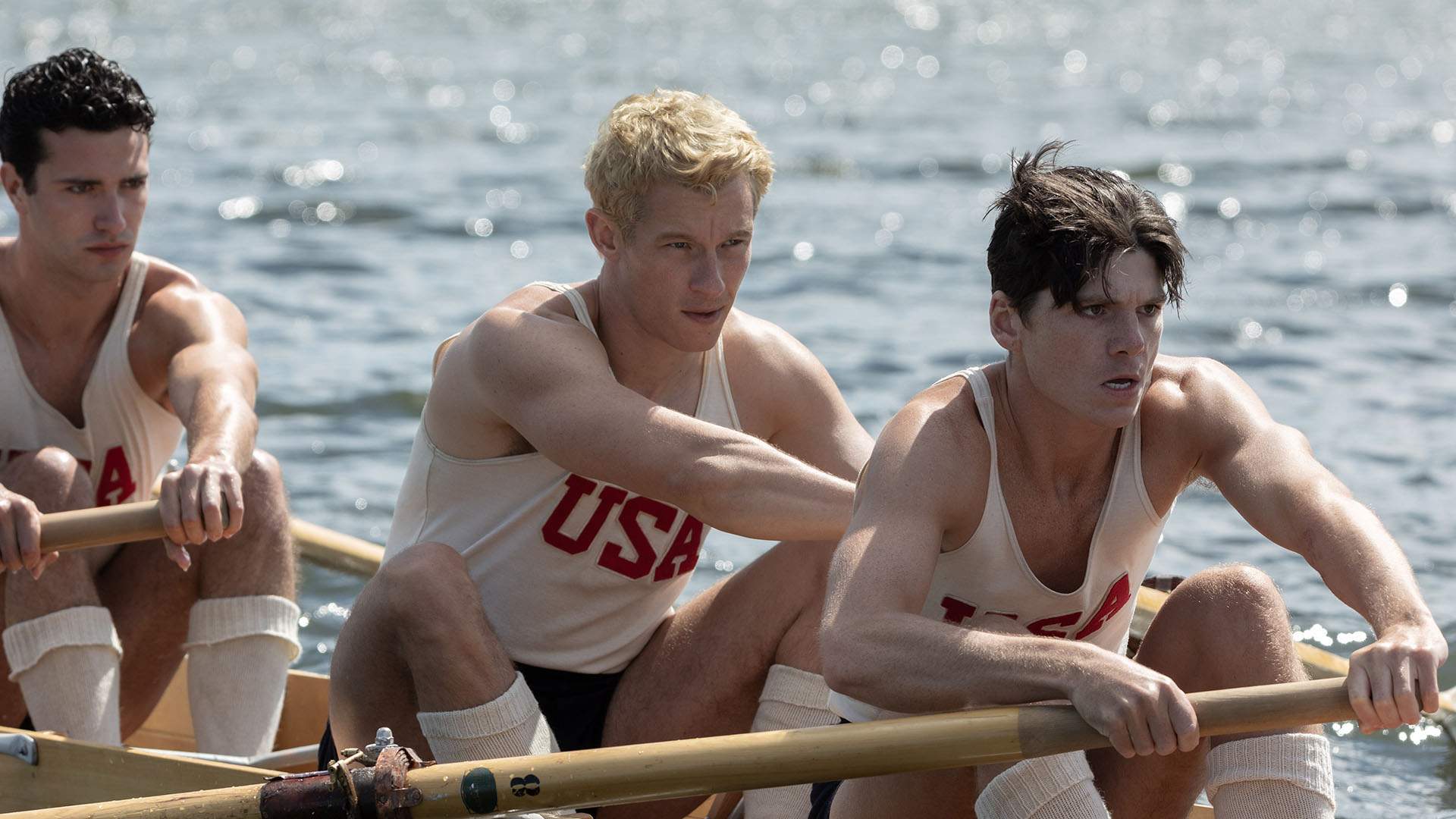
ON PLAYING A ROWING COACH WHO'S BASICALLY THE ANTI TED LASSO
"That's the joke: I say I didn't have to do any training, which is slightly true. Basically it's being the father of nine kids, essentially.
I think coaches are like dads. There's a certain tough love aspect to them. From his part, there's the aspect for the kids that they want to impress and do the right thing by their coach, and so there's a real fatherly theme that runs through coaches, I think.
And in particular with Ulbrickson, he's described as someone who barely cracks a smile, and it's pointing me in the direction of all those coaches that we see in various sports that just look like they're so determined to win that they look like they don't seem to enjoy themselves at all, except maybe when they have a trophy in their hands. I just love the idea of those aspects of him.
It's basically the opposite of Ted Lasso. No warm and fuzzy edges. In fact, when I first started speaking to George about it, I was like 'can we lean into this even more?' — this idea that barely, I think it's once or twice in the film, you get a sense of the warmth that actually resides inside of him that he is proud of the kids, and that there is love inside of him.
I think when we first meet Ulbrickson, he's not really looking at the individuals in the boat. He's just looking at the sizes of the different guys, and how fit and healthy they are, and just going 'let's just pick the eight'. They're not humans — just the eight best human machines that are going to power the boat."

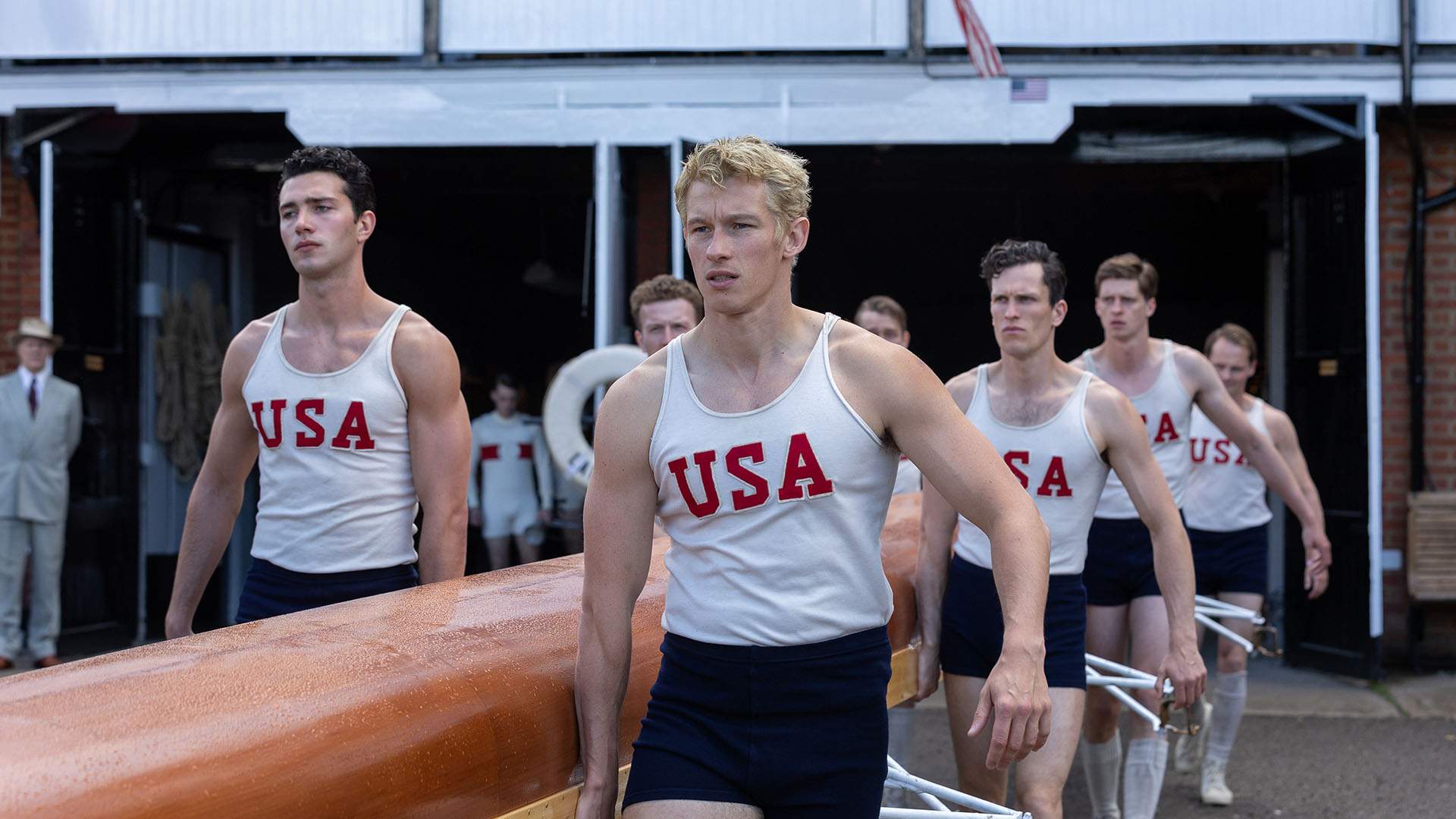
ON THE CHALLENGE OF BALANCING ULBRICKSON'S FOCUS ON SUCCESS WITH CARING ABOUT HIS TEAM
"George, recently on a press tour in LA, was joking about sharing dailies, the footage, with the studio in the early weeks of the shooting. And I don't know if he was joking or not, but he was just talking about how the studio — because he and I had agreed on the sort of coldness, this sort of inability to show warmth, and I think they maybe wanted me to be a bit more likeable through the film.
I was like 'no, I just want to hold off on that until the right moment to show that warmth'. I do feel like the audience is patient enough to see that there's a care waiting and brewing underneath there.
But I find that every movie has its own challenges, and one of them was just trying to hold back too much warmth in this. I think that it earns its place at the right moment."

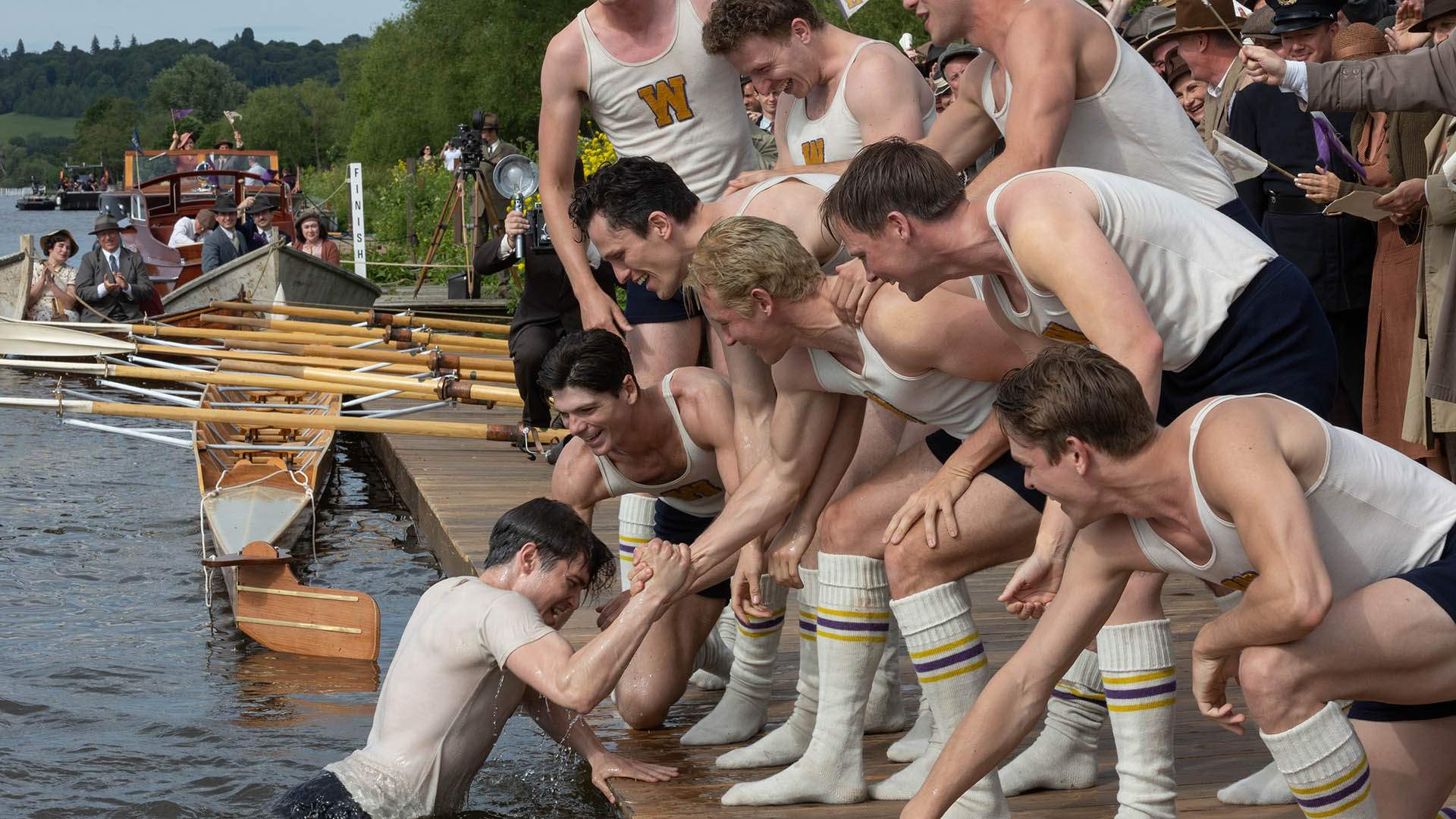
ON PREPARING TO ENTER THE ROWING AND COACHING WORLDS
"I did do some rowing training. I did some single-scull rowing, which I think it's one of the hardest things I've ever had to do in my life. The balance of a single scull is crazy.
I just did a lot of watching of the coaches that were training the boys, and spent a lot of time sort of observing their journey they went on, which was quite remarkable actually. I was very impressed with how they went from complete novices to really very quickly in the space months pulling the trick that they could be an Olympic rowing team for the film.
The relationship I had with them had this inbuilt kind of fatherly aspect to it anyway. I'm a bit older now and they're all young guys. We just had a good camaraderie in that sense.
I felt a little bit perfectly removed enough from them, but admiring of what they were achieving on screen as actors and as a team that they were forming. It was a nice relationship that we formed just through the shoot."

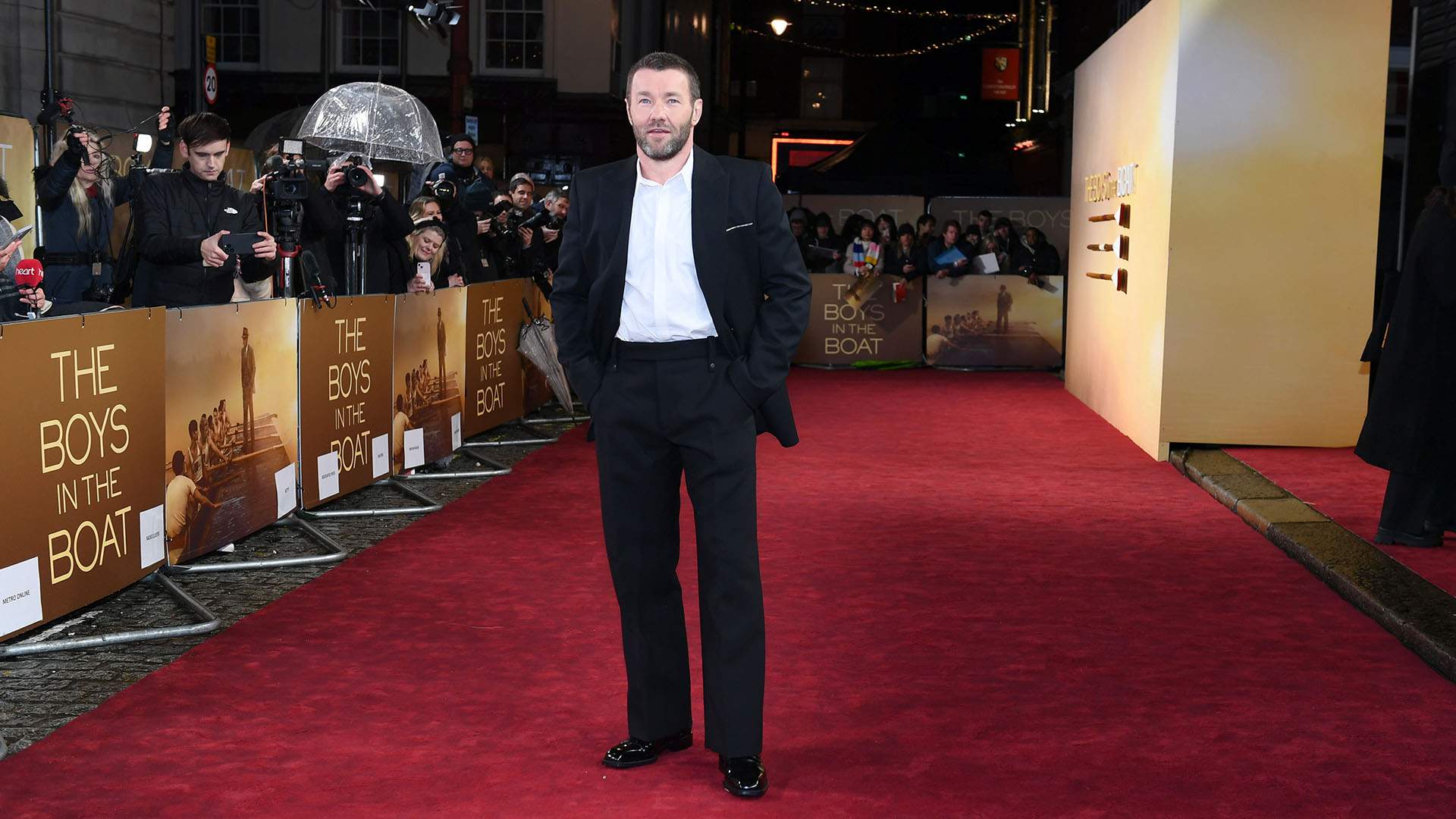
Joe Maher/Getty Images for Warner Brothers
ON THE COMPLICATIONS AND PRESSURE OF STEPPING INTO A REAL-LIFE FIGURE'S SHOES
"It all depends on how indelible that person was in their real life. I was very anxious about getting Harry Harris right for Thirteen Lives and doing the right thing by that story, knowing that I would eventually meet him and hope that he felt good that I stepped into his shoes.
Ulbrickson is a different story because he's not somebody that the average person would really know about, know what he looked like. Uncannily, he looked a lot like my Dutch grandfather when I saw photos of him. I was like 'he looks like my Opa'. But there's no real footage or newsreel footage or audio recordings of him, so it was really up to me to just take the essence of what was said about him and amalgamate that with me so that I could be the right version of him that would make the movie work.
So I didn't feel this immense pressure. The pressure I see is when I read about actors taking on some iconic role. Any of those actors who stepped into that TV show The Crown, like Elizabeth Debicki playing Diana. And Rami Malek doing Freddie Mercury. They're being asked to play characters or real-life people that we have an image of, that we have a memory of, and we have an affinity with because we're so familiar with them.
That to me is a real challenge for actor — the nerves of stepping into something like that. Something like this is different, because there's a certain freedom and therefore a lack of or less pressure."

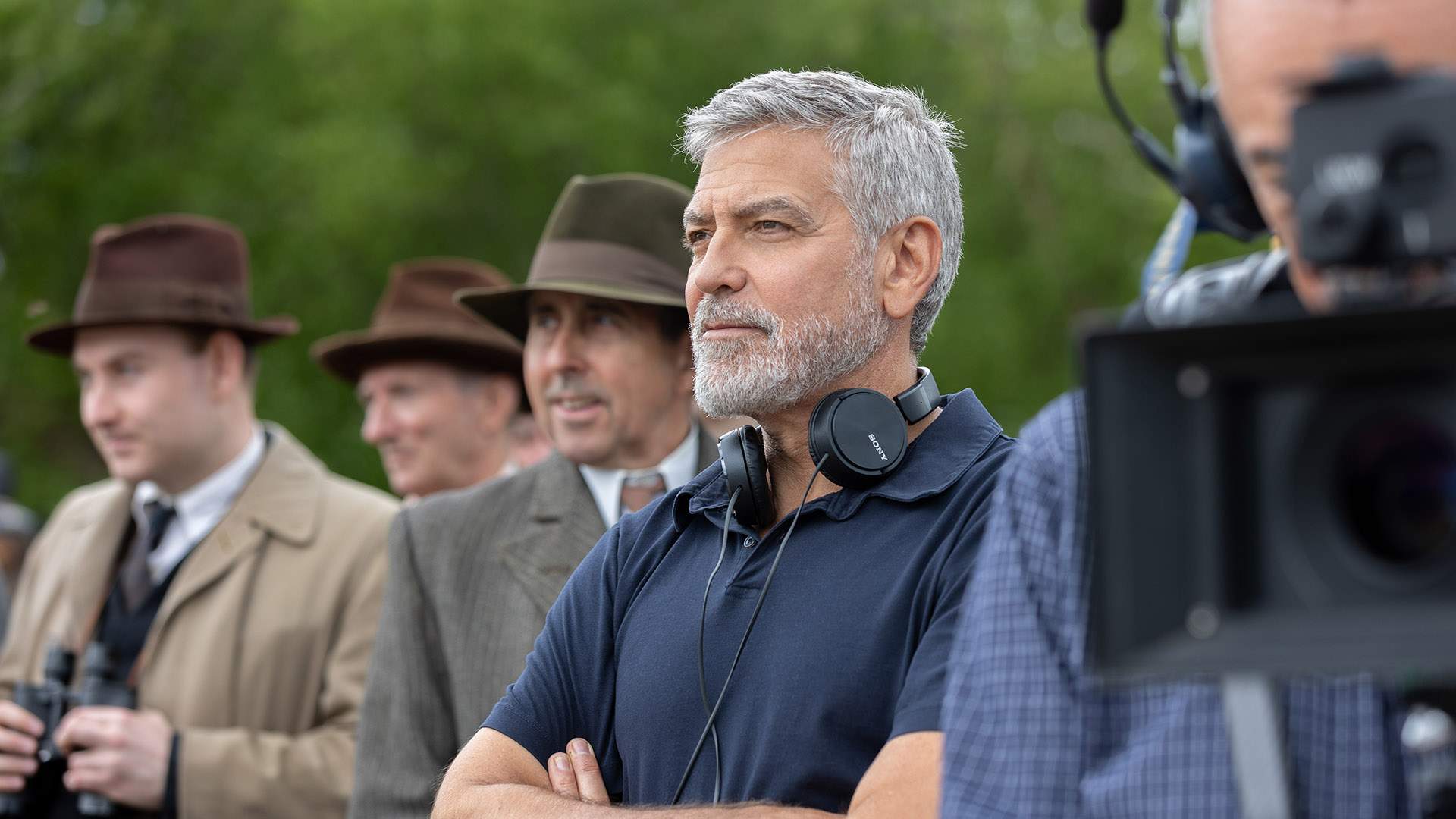
ON WORKING WITH A FELLOW ACTOR-TURNED-DIRECTOR/WRITER/PRODUCER IN GEORGE CLOONEY
"I think George has a really good shorthand with how to shape performance, being an actor. It is remarkable how many directors don't really either understand how to talk to actors. Or they get nervous to direct actors. Or, in the worst-case scenario, they've had bad experiences with actors and they are sort of hard-wired to not love working with them.
George has a real care and love for actors, and a really good way of shaping performance. And as an actor working after having directed a couple of movies, I just feel like I'm perhaps a bit more of a team player in understanding how a film set works, and how to play my part in making it easier for what the scene requires — but never presuming to think I know better or that I would put my hand up to say 'are you sure you want to move the camera that way?'.
I would never do that, the same way I wouldn't want an actor-turned-director telling me how I should play the character in some specific way."

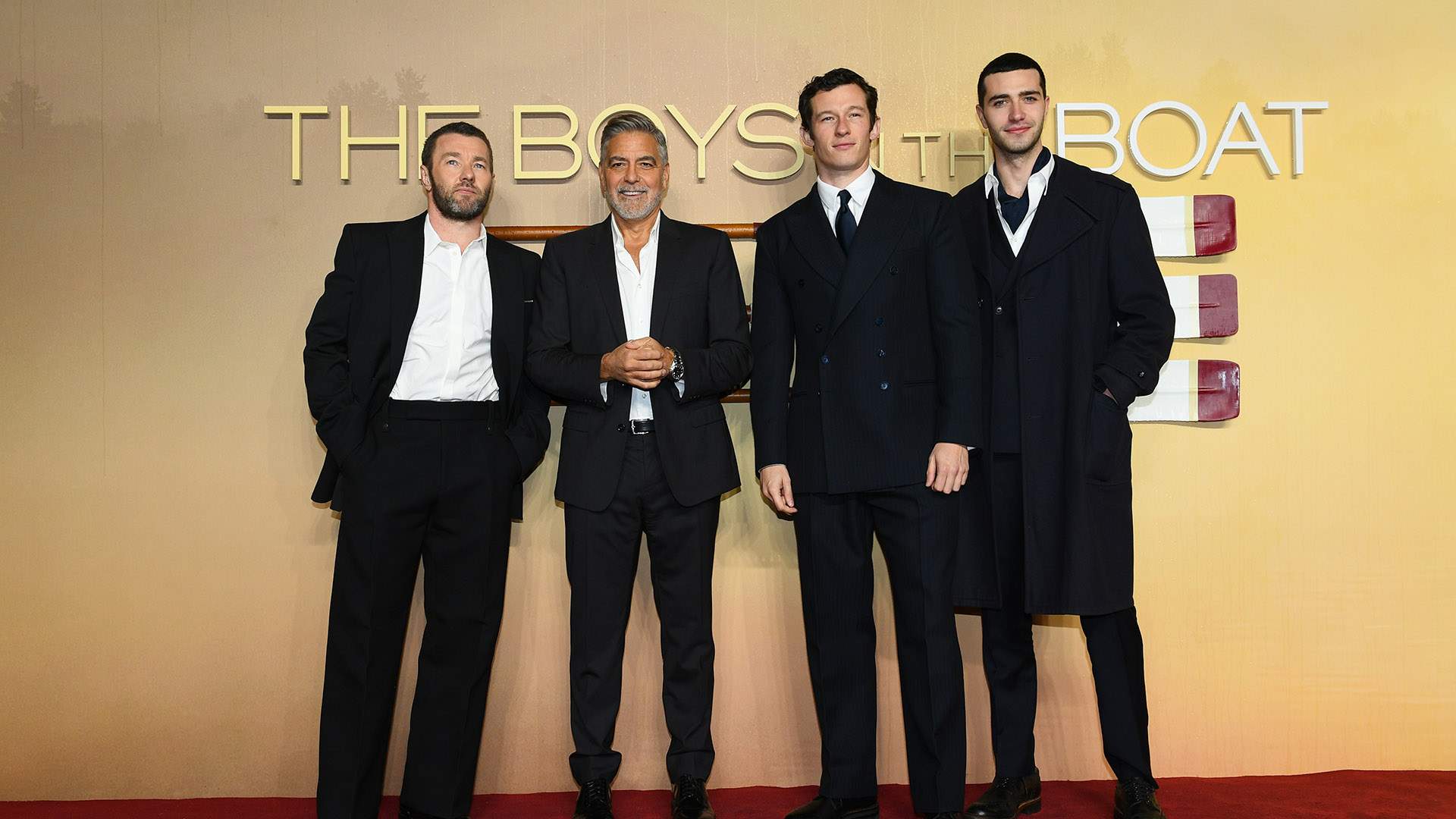
Joe Maher/Getty Images for Warner Brothers
ON EDGERTON'S CAREER TRAJECTORY EXCEEDING EVERYTHING HE EVER IMAGINED
"I feel like when I was a kid, I never really set goals. I went to drama school so I could work in the theatre, and then I started realising that it was possible to work in television and film because I knew stage actors who had also done that.
Each step of the way was just stepping blindly into the future going 'alright, well maybe I could try this and try this'. But I never imagined that I'd get to work in Hollywood. I did start to develop that ambition once I saw that it was possible, but even then I didn't imagine that I'd have a nice, full career and enjoy the kinds of things that I get to do now.
That said, there's still challenges that I want to get my hands on, and I've got lots to learn — like lots to learn — and lots that I want to try and wrestle with. Perhaps one of the great things about being an actor is the ability, as long as your brain keeps working, touch wood, that you can just keep evolving each step of your life, each phase life, into different sorts of characters.
Here, I'm watching a bunch of other people be athletes, and I get to be the coach. And one day, if I'm lucky, I'll be playing grandfathers on film."

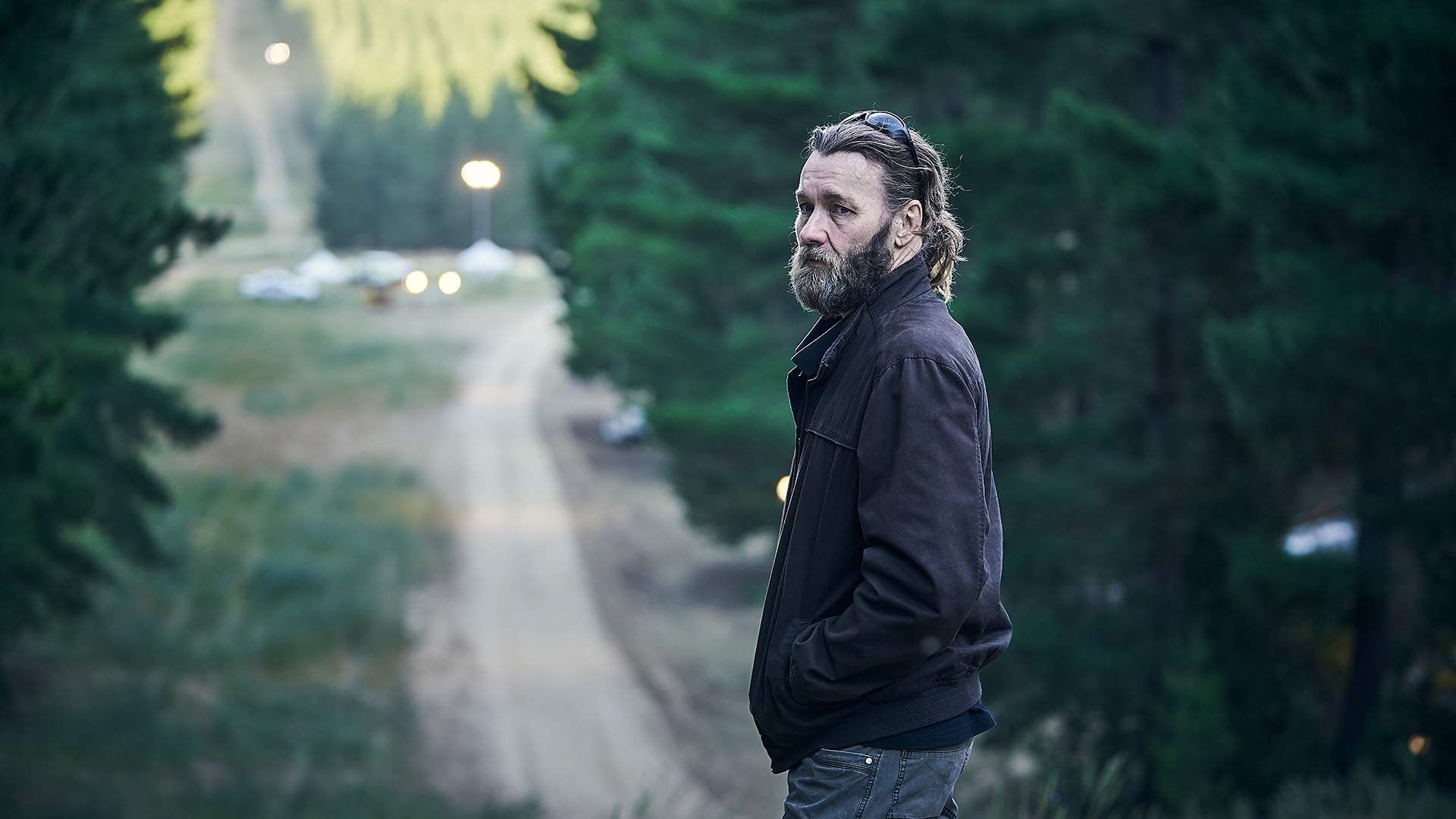
The Stranger
ON WHAT EDGERTON LOOKS FOR IN A ROLE
"It's always reading the script and just having a response. Character and story. Particularly now that I have a lot of responsibilities in my life being a dad. It's not just me and a couple of suitcases. That response has to be really, really strong that I feel a compulsion to get involved in something, particularly if it means going to another city.
We stay together as a family. It's not like I'm going off for months away from my kids. I just want to feel a real draw and a real pull to do something, and usually it just starts with reading the script and going 'ohh, this is fascinating'.
There's usually an element to it where I'll feel like something's got to be a bit of a challenge — or a little bit terrifying."

The Boys in the Boat opened in Australian and New Zealand cinemas on Thursday, January 4. Read our review.
The Boys in the Boat images: Laurie Sparham © 2023 Metro-Goldwyn-Mayer Pictures Inc. All Rights Reserved.
